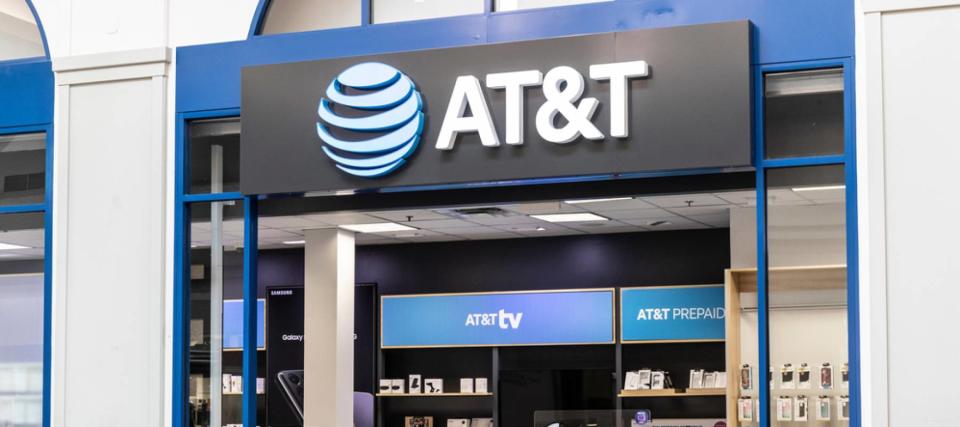Cash-strapped Americans can't afford to pay their phone bills on time — and AT&T shares crashed the most in 20 years because of that

Mega-cap, blue chip telecom stocks are not known for making big moves. In fact, telecom has historically been considered a defensive sector.
So when AT&T (T) shares plunged 7.6% on Thursday — as the S&P 500 climbed 1% — it caught many investors by surprise.
AT&T is one of the largest telecoms in the world. More than 100 million consumers in the U.S. use its mobile and broadband services. At the same time, the company also serves nearly all of the Fortune 1000 companies with connectivity and smart solutions.
So why did this telecom giant take a nosedive on a green day for the broad market? Poor cash flow. And the main culprit for that? A struggle American consumer.
Mitt Romney says a billionaire tax will trigger demand for these two physical assets — get in now before the super-rich swarm
Warren Buffett likes these 2 investment opportunities outside of the stock market
There’s a ‘perfect storm’ brewing in the multifamily housing market — here are 3 of the easiest ways to take advantage
Late bill payments
AT&T is considered a defensive name because wireless and Internet services are necessities for the modern economy. Whether boom or bust, people have to pay their phone bills and Internet bills every month, providing the company with a recurring business.
But in today’s economic climate, bills aren’t getting paid on time — and that impacts the telecom operator’s financials.
In the earnings conference call, CFO Pascal Desroches said that customers were paying their bills on average two days slower compared to a year ago, which hurt the company’s cash flow.
“The impact of this is almost $1 billion for the quarter,” Desroches says.
The reality is, while the U.S. economy has made a strong recovery from the COVID-19 pandemic and the unemployment rate held at a decades low, consumers are on a tight budget.
“There’s clearly some dynamics in the economy. We have customers that are stretching out their payments a little bit,” AT&T CEO John Stankey tells CNBC.
“We expect that they’re going to continue to pay their bills, but they’re taking longer to do it. That’s not atypical in an economic cycle.”
Beating expectations
AT&T’s post-earnings drop certainly looks painful, but you wouldn’t know that just by looking at the headline numbers.
In Q2, the company’s revenue from continuing operations totaled $29.64 billion, which was up 2.2% year over year excluding the impact of divestitures. Adjusted earnings from continuing operations came in at 65 cents per share, down from 73 cents per share earned in the year-ago period.
Going into this earnings season, Wall Street analysts expected the company to earn 61 cents per share on $29.55 billion of revenue for the quarter.
In other words, AT&T actually beat both top and bottom line expectations from Wall Street.
Management did, however, lower their 2022 free cash flow guidance from the $16 billion range to the $14 billion range, citing “the combination of elevated success-based investment, the potential for further extension of payments by our customers, inflation and the more challenging environment facing our Business Wireline unit.”
Not the only beaten-down name
AT&T is not the only telecom company that’s taken a beating this earnings season.
Verizon (VZ), for instance, reported Q2 results on Friday morning. For the quarter, the company generated $33.79 billion of revenue, relatively flat from a year ago. Adjusted earnings per share was $1.31, compared with $1.39 in Q2 of 2021.
Analysts were projecting $33.75 billion of revenue and earnings of $1.32 per share.
Verizon shares are down 6% in early Friday trading.
What to read next
Sign up for our MoneyWise newsletter to receive a steady flow of actionable ideas from Wall Street's top firms.
A TikToker paid off $17,000 in credit card debt by 'cash stuffing' — can it work for you?
‘There’s always a bull market somewhere’: Jim Cramer’s famous words suggest you can make money no matter what. Here are 2 powerful tailwinds to take advantage of today
This article provides information only and should not be construed as advice. It is provided without warranty of any kind.

 generic
generic 